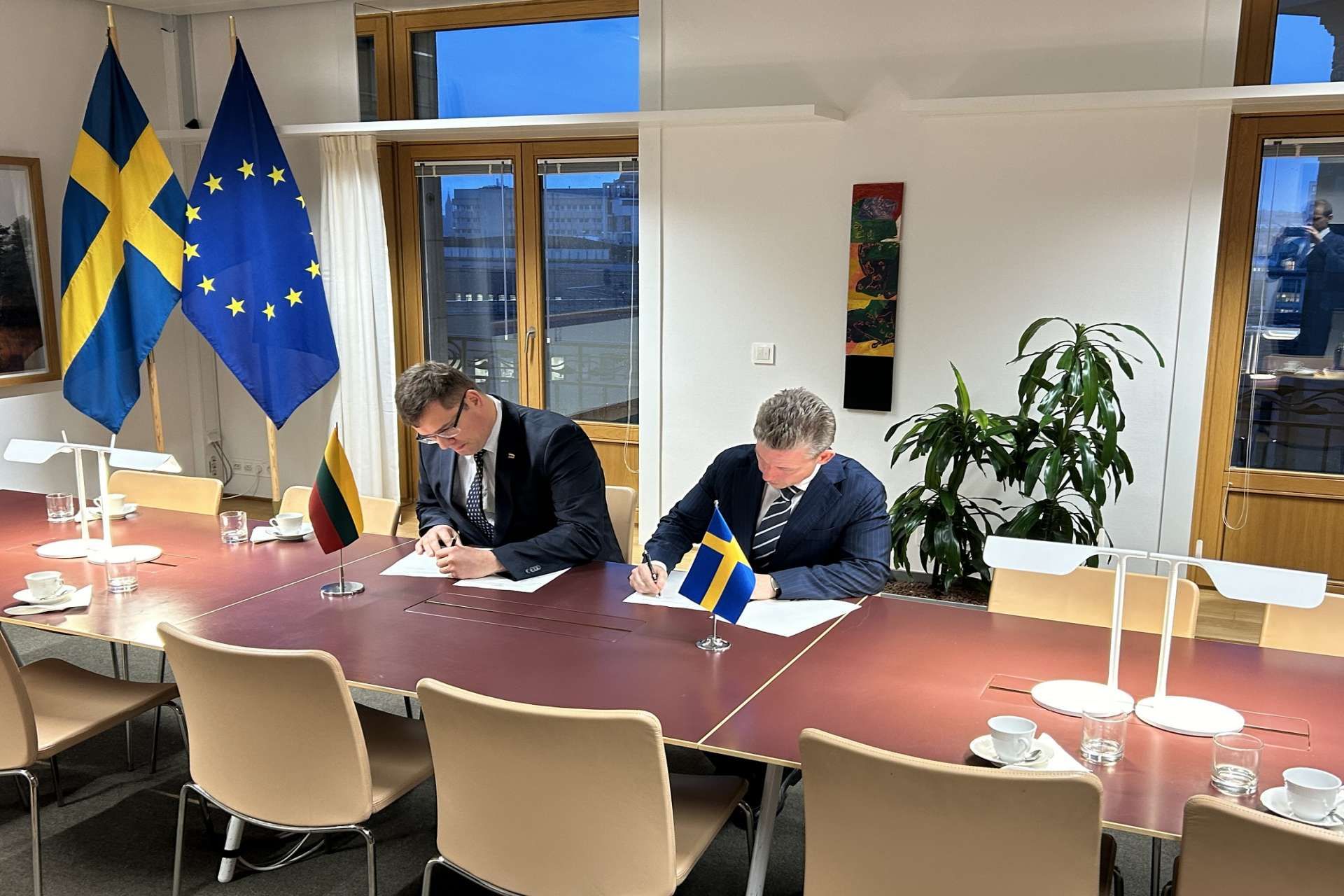Breaking News
Lithuania and Sweden Sign Strategic Defense Cooperation Agreement to counter Russia.
On November 19, 2024, in Brussels, Lithuanian Defense Minister Laurynas Kasčiūnas and his Swedish counterpart Pål Jonson signed a letter of intent marking a new phase in their bilateral defense cooperation. This strategic agreement aims to strengthen industrial ties between the two countries and develop joint initiatives in air and ground defense. It specifically includes the deployment of Swedish air defense systems in Lithuania and Vilnius's acquisition of Swedish infantry fighting vehicles, thereby enhancing both nations' defense capabilities.

SAAB RBS 70 NG short-range air defence system (Picture source: SAAB)
One of the key aspects of this agreement involves Swedish air defense systems. Sweden boasts advanced technologies, such as the RBS 70 NG, a portable surface-to-air missile system, and the RBS 98, based on the IRIS-T missile, which offer effective protection against aerial threats. These systems would enable Lithuania to bolster its air coverage, a critical aspect given the increasing tensions in the Baltic region, particularly due to Russia's heightened military activity in the Kaliningrad enclave and the Baltic Sea. These discussions build on previous agreements, including one in December 2023, when Lithuania secured Swedish contractual terms to acquire the RBS 70 NG. In July 2024, Lithuania ordered these systems under a framework agreement with the Swedish Defense Materiel Administration (FMV), highlighting the deepening cooperation between the two nations.
Another key component of the agreement is Lithuania's acquisition of CV90 infantry fighting vehicles. These armored vehicles, produced by BAE Systems Hägglunds, are renowned for their modularity, exceptional mobility, and high level of protection. Already in service with several European armies, the CV90 has demonstrated its effectiveness in various combat environments. In October 2024, Lithuania formalized its interest in equipping two mechanized battalions with over 100 CV90 units, and the National Defense Council mandated Minister Kasčiūnas to begin acquisition procedures while ensuring collaboration with the local industry. This effort would enable Lithuania to modernize its ground forces, enhancing their maneuverability and firepower.
However, the agreement goes beyond mere equipment acquisition. It reflects a long-term strategic vision aimed at establishing a sustainable industrial collaboration between the two countries. Projects include joint research programs to enhance threat detection systems, the transfer of critical technologies, and the co-production of specific CV90 variants tailored to the needs of Baltic forces. These initiatives bolster Lithuania's strategic autonomy, allowing it to position itself as a regional player in the defense sector.
This partnership also has significant implications for regional security. By enhancing their respective capabilities, Lithuania and Sweden are improving the interoperability of their armed forces, a crucial element under NATO commitments. With Sweden's accession to NATO in March 2024, this bilateral cooperation directly contributes to securing NATO’s eastern flank while addressing the challenges posed by an unstable geopolitical environment.
At the same time, this collaboration fosters economic development, particularly by creating opportunities for Lithuanian companies involved in the production and maintenance of equipment. This stimulates innovation and strengthens national industrial expertise while reducing Lithuania's dependence on external suppliers.
The next steps include finalizing industrial agreements to fully integrate local companies into these projects. The first deliveries of RBS 70 NG systems are expected as early as 2025, while CV90 vehicles could enter service in the following years. Rigorous monitoring will assess the outcomes of this cooperation and explore new opportunities, such as the development of drones or electronic warfare systems.
In summary, this collaboration between Lithuania and Sweden represents an exemplary model of strategic and industrial partnership in the defense sector. It combines innovation, autonomy, and collective security while contributing to regional stability in an increasingly complex geopolitical context.

Lithuanian Defense Minister Laurynas Kasčiūnas and his Swedish counterpart Pål Jonson signed a letter of intent marking a new phase in their bilateral defense cooperation. (Picture source: Lithuanian MoD)


























